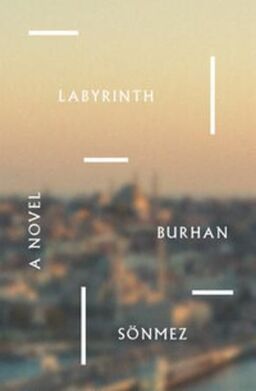
Labyrinth
Labirent (Originaltittel) · Burhan Sonmez ; translated from the Turkish by Umit HusseinSönmez, Burhan · Bok · Engelsk · utgitt 2019 · Roman
Ikke ledig
ca 3 - 5 uker ventetidHenter eksemplarliste...
Fakta
Laster innhold...
Kopiér til utklippstavle
*0010770609 *003NO-LaBS *00520211116211750.0 *007t *008191209s2019 xx er 1 eng d *009 cam 1 *019 $bl$dR *020 $a978-15-90510-98-8$qheftet$cNkr 182,00 *0243 $a9781590510988 *035 $a(NO-LaBS)12315427(bibid) *035 $a(NO-OsBAS)150336709 *040 $bnor *0411 $aeng$htur *090 $c82$dSÖN *1001 $aSönmez, Burhan$d1965-$6(NO-LaBS)770609-1$_39322800 *24510$aLabyrinth$cBurhan Sonmez ; translated from the Turkish by Umit Hussein *2461 $aLabirent$iOriginaltittel *260 $aNew York$bOther Press$c2019 *300 $a208 sider$c21 cm *336 $atekst$0http://rdaregistry.info/termList/RDAContentType/1020$2rdaco *337 $auformidlet$0http://rdaregistry.info/termList/RDAMediaType/1007$2rdamt *338 $abind$0http://rdaregistry.info/termList/RDACarrierType/1049$2rdact *386 $mNasjonalitet/regional gruppe$bTR$0(NO-LaBS)770609-1 *500 $aOriginaltittel: Labirent *5208 $aA blues singer, Boratin, attempts suicide by jumping off the Bosphorus Bridge, but opens his eyes in the hospital. He has lost his memory, and cant recall why he wished to end his life. He remembers only things that are unrelated to himself, but confuses their timing. He knows that the Ottoman Empire fell, and that the last sultan died, but has no idea when. From the confusion of his social and individual memory, he is faced with two questions. Does physical recognition provide a sense of identity? Which is more liberating for a man, or a society: knowing the past, or forgetting it? *650 4$aHukommelsestap$_17322800 *650 4$aIdentitet$_15774700 *651 7$aTyrkia$9nob$2Bokbasen AS$_30791700 *655 7$aRoman$9nor$2norvok$_27446100 *655 7$aRomaner$9nob$2Bokbasen AS$_30171800 *7001 $aHussein, Ümit$eoversetter$4trl$_31502100 *85641$amedia.boknett.no$uhttps://media.boknett.no/objects/09/67/150336709/productimage_ORG_2afcbd9b1bc17d92d78eba26ed5da7d6ec71bbe5.jpg$nBokbasen, Oslo$qimage/jpeg ^